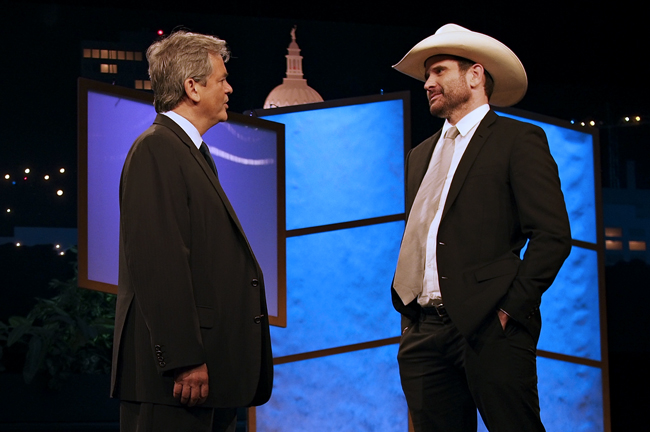Editor’s Note: In the run-up to the November election for mayor, the Texan will be running Q-and-A’s with the candidates. Early voting began Oct. 20 and ends Oct. 31. Election Day is Nov. 4. Students can vote on campus at the Flawn Academic Center. This interview has been condensed from its original length.
The Daily Texan: Why are you running for mayor?
Todd Phelps: I grew up here, and I've been frustrated with our leaders and the direction they've been taking us, and there's an affordability and traffic crisis in Austin, and our leaders by their own admission have done nothing to address it… People I grew up with here in town, they can't afford to live here. They're having to move out… From a student perspective, if you went to UT, you get out, you don't want the rents to be so astronomical that you can't stay here if you choose to. And it's the first time I ever ran for anything… I've been talking about this problem for about 12 years, and decided you can't sit around and complain about something if you don't proactively get involved.
DT: One of the big issues for us, of course, is affordability. Affording not just a place to live after we graduate, but when we're students too. What sorts of things do you think you can do to help students on that front?
Phelps: I'm pushing for a residential homestead maximum exemption for property owners, but I want to expand those types of exemptions to rental properties and a lot of [multi-family] properties by working with the state so that those types of costs aren't passed through to people in the artistic community or students… Secondarily, from a student perspective, I think that we need to start running bus service, and even the Red Line, which we have existing, at broader hours in and out of downtown.
DT: Do you think the Red Line really helps students?
Phelps: No… I think if it ran broader hours, it might actually get some people in and out of the entertainment district… This is why I’m against the rail proposal exactly. Because that is going to cost students a lot of money, and it doesn't deliver… The taxes that are going to be assessed across the board on property values that students are renting in is going to be insane. [The costs are] going to be passed along [to students].
DT: What about the sound ordinance? Where do you stand on that?
Phelps: I've been shut down on this campus playing for parties before, where I wasn't shown a decibel reading. So I think first off, we need to make sure that the decibel readings are shown to anybody that gets shut down by the police, and I think that we can manage to have live performances properly where the sound won't travel past the perimeter of the properties within the ordinance.
DT: You mentioned you wanted to let transportation network companies into the market. What would be your ideal solution for that issue?
Phelps: A lot of people want to… have the ability to drive for a TNC and drive for a cab company. They're kind of held hostage in a way, with the stipend they have to pay to the cab companies right now, and the cab companies control X number of cabs… [I think] if you have insurance, and you pass a background check, you're good to go… [But] don't think that background checks are a catch-all… The city government should enhance our lives, not hinder it. Back to the sound ordinance and things like that. [The city is] looking for fees anywhere they can get them. It's the same with a 100 percent cell phone ban. I'm not for that. I think that texting obviously is dangerous. Answering a call in your car is sometimes very necessary.
DT: How do you think you could improve communication between City Hall and campus?
Phelps: We could start a communication conduit… and subdivide it into topics that concern students the most and have them weigh in… An app might be the best way, actually.
















